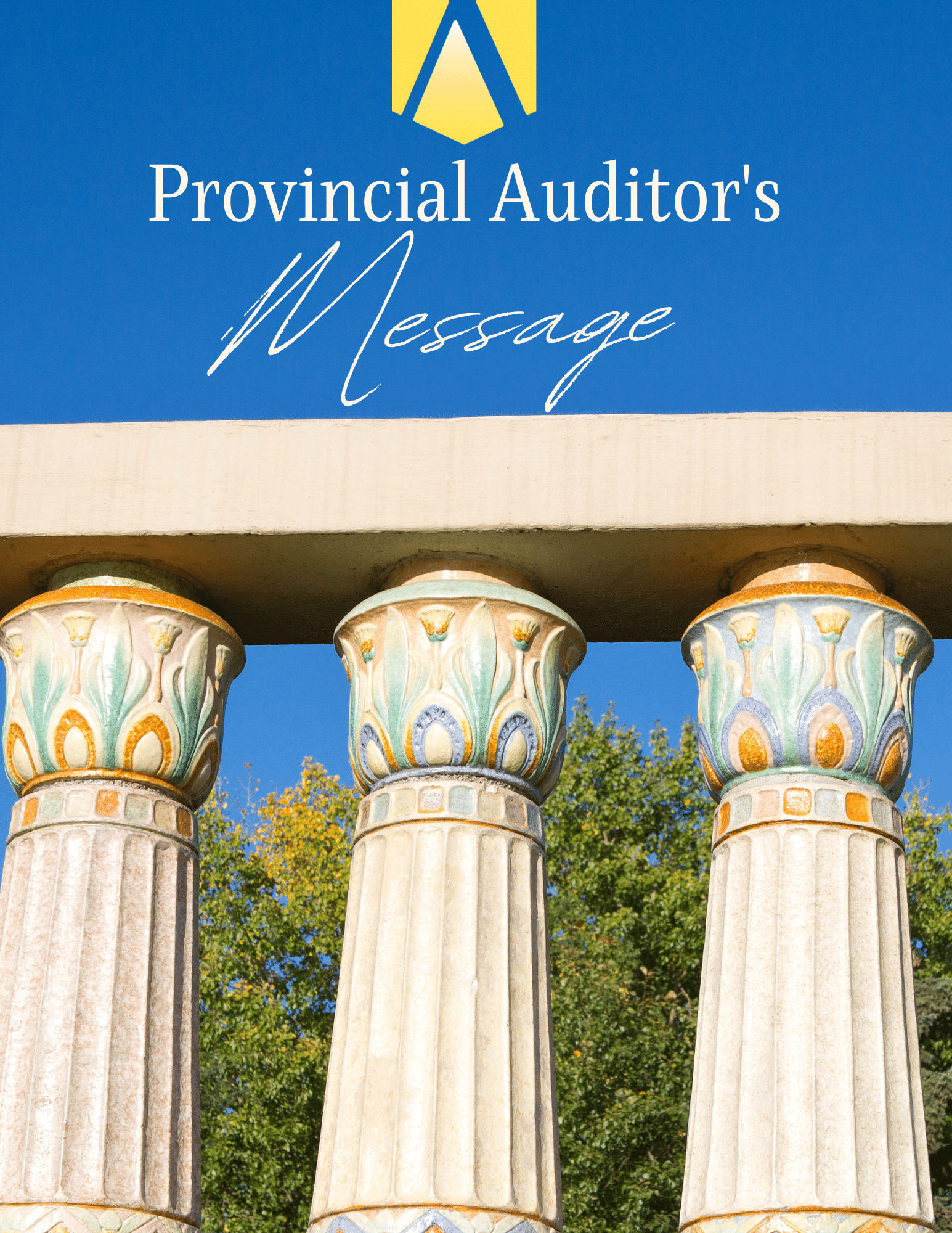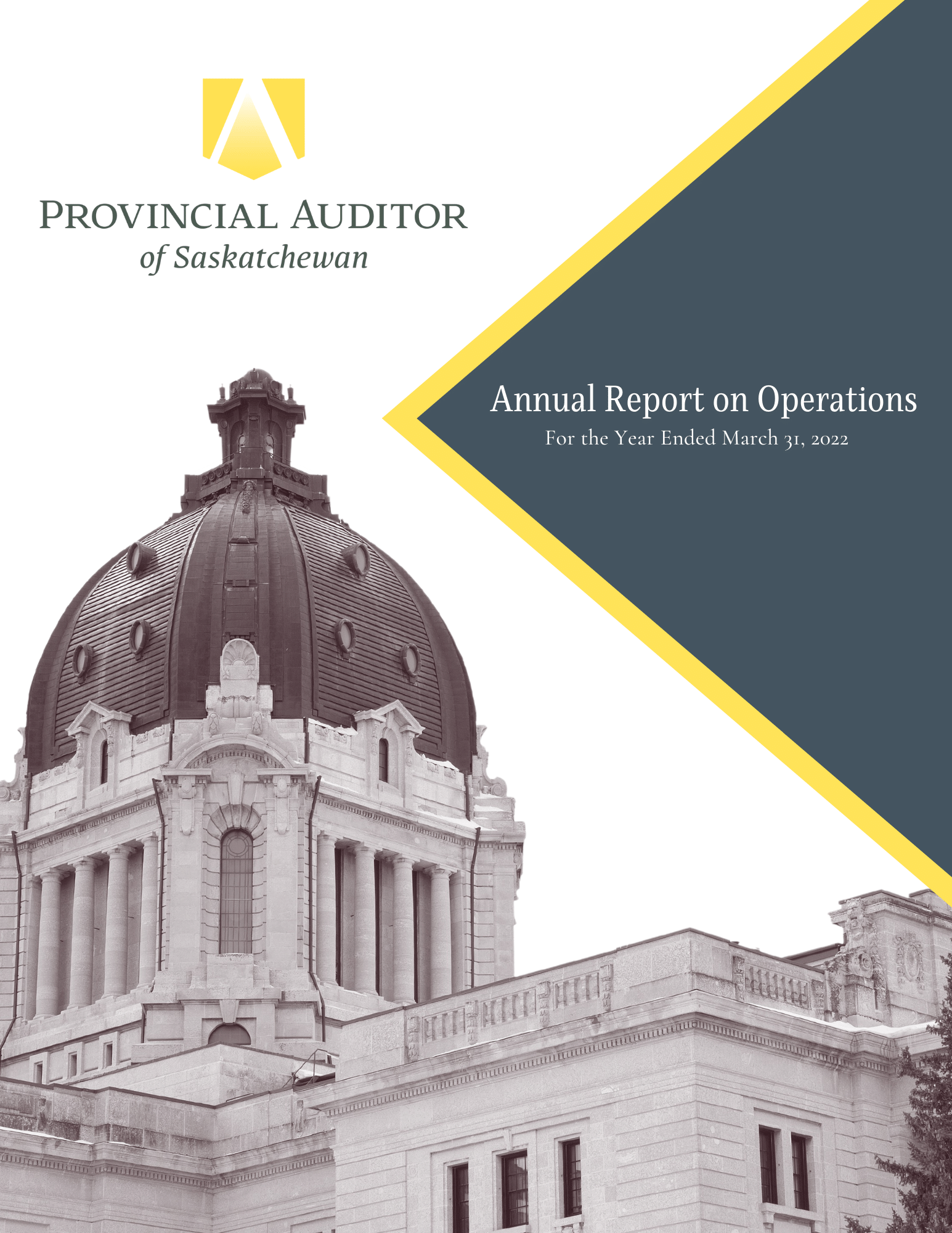Annual Report on Operations for the Year Ended March 31, 2022
Read our 2022 Annual Report
 This is my first annual report as the Provincial Auditor of Saskatchewan as I was appointed Provincial Auditor in November 2021. This Annual Report completes the accountability cycle that began when the Office tabled its 2022 Business and Financial Plan in November 2020.
This is my first annual report as the Provincial Auditor of Saskatchewan as I was appointed Provincial Auditor in November 2021. This Annual Report completes the accountability cycle that began when the Office tabled its 2022 Business and Financial Plan in November 2020.
Due to the COVID-19 pandemic, much of our audit work was done remotely during 2021–22 resulting in less audit travel than planned. Staff continued to work hard to get audits done in a cost-effective manner and on time. Our Office continued to deliver our audit opinion on the Government’s Summary Financial Statements within deadlines the same as pre-COVID pandemic. We could not have done this without the great support we received from auditees along with the professional and engaged staff we have in the Office.
During 2021–22, we worked hard to meet the needs of legislators and the public for information about government programs and services, while being respectful of additional pressures some government agencies faced because their staff were fully deployed in providing services focused on the COVID-19 pandemic (e.g., Saskatchewan Health Authority). As a result, there were certain audits we planned as an Office that we decided to delay (e.g., follow-up audit of health laboratory services).
The Office always manages its finances carefully. The unqualified independent external audit reports on the key aspects of the Office’s operations, finances, and controls gives legislators and the public confidence in the reliability of the Office’s administration. This Annual Report also includes further details on the Office’s operational and financial performance for the year ended March 31, 2022.
Overall, 2021–22 was a successful year for the Office. The Office achieved nine of its 11 performance targets. The Standing Committees on Public Accounts and Crown and Central Agencies’ high rate of agreement with our audit recommendations shows the recommendations we make reflect areas that are important to improve public sector management. Through our 2021 Report – Volumes 1 and 2, the Office gave legislators and the public the results of quality, relevant audits. These Reports contained the results of the annual integrated audits of over 260 different agencies, 12 performance audits, and 40 follow-up audits. The Government’s implementation of audit recommendations also shows the Office’s work contributed to better management in the public sector.
Our main resource will always be our staff and delays in hiring can significantly impact our budget and operations; for example, audits may be delayed. A key challenge for the Office continues to be the higher than anticipated turnover of qualified CPAs and performance auditors. The market for CPAs and those training to become professional accountants remains very competitive, which is also making it more difficult to find contracted assistance. In order to meet audit deadlines with a reduced number of staff, the Office deferred some of its specialized training but also saved time as most training sessions took place virtually. In addition, staff took less vacation than anticipated. As an Office, we continue to focus on recruitment and succession planning efforts to effectively manage staff departures and retirements.
In closing, I appreciate the cooperation and support of legislators, government officials, and appointed auditors. In particular, I thank the Standing Committee on Public Accounts for its attention to and support of the Office’s work. Its thorough public review of the Office’s Reports helps ensure the work of the Office makes a difference.
Tara Clemett, CPA, CA, CISA Provincial Auditor
Read: Annual Report on Operations For the Year Ended March 31, 2022


